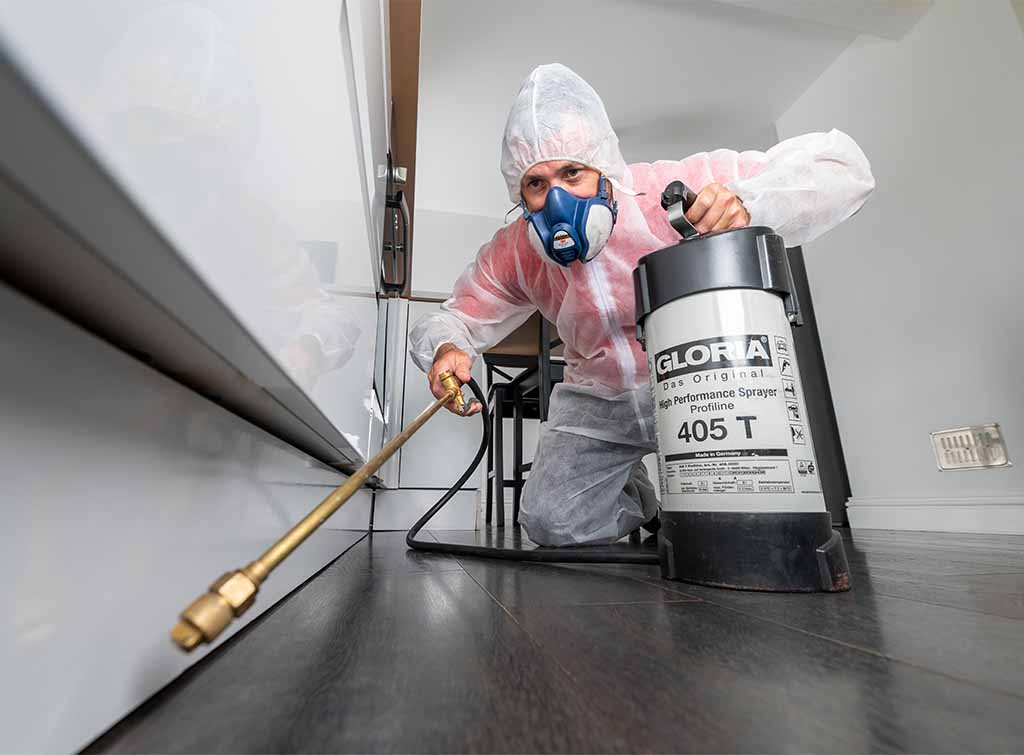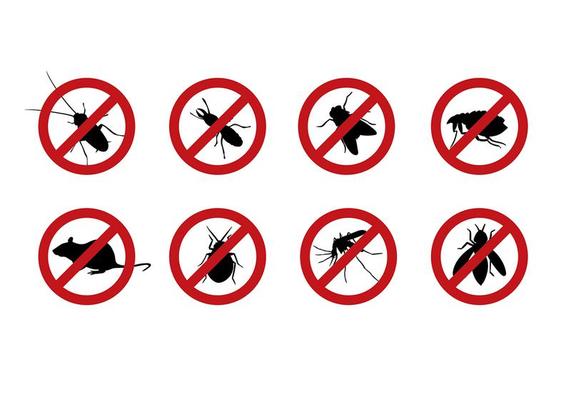Chicago Wasp Nest Removal Specialists: Rapid and Trusted Solutions for Your Pest Problems
Chicago Wasp Nest Removal Specialists: Rapid and Trusted Solutions for Your Pest Problems
Blog Article
Checking Out Different Methods and Techniques for Comprehensive Insect Control in Residential Spaces
The landscape of insect control in residential areas has progressed considerably, demanding an extensive understanding of various methods that can be employed for efficient monitoring. Conventional chemical therapies, while effective, are progressively being enhanced by environment-friendly choices and Integrated Insect Administration (IPM) strategies.
Comprehending Parasite Control Basics
Efficient bug control is important for preserving a risk-free and healthy and balanced living setting. Understanding the fundamentals of bug control entails recognizing the sorts of bugs that generally invade domestic areas, the possible threats they pose, and the significance of precautionary procedures. Usual household pests include rodents, bugs, and other unwanted creatures that can jeopardize health, damages property, and trigger health issues.
A vital initial step in pest control is identifying the specific pests present. This can involve inspecting areas such as kitchens, cellars, and attic rooms, where parasites are most likely to prosper. When identified, it is essential to understand their habits, reproducing cycles, and liked atmospheres, which can inform appropriate control approaches.
Preventative procedures are fundamental to effective parasite administration. These include securing entrance points, maintaining sanitation, and decreasing clutter to remove hiding spots. In addition, correct food storage and waste management can considerably reduce the allure of a home for parasites.

Standard Chemical Therapies
Amongst the numerous parasite control strategies, traditional chemical treatments have long been utilized to deal with problems in residential spaces. These treatments generally include the application of chemical pesticides developed to get rid of bugs such as bugs, rodents, and other unwanted organisms. The effectiveness of these chemicals can vary, depending on the sort of parasite, the solution of the chemical, and the approach of application.
Usual courses of standard chemical treatments include insecticides, fungicides, rodenticides, and herbicides, each tailored to fight specific pests. Pesticides, as an example, may target ants, cockroaches, or termites, while rodenticides are especially developed to control rodent populaces. These chemicals are usually offered in various forms, consisting of lures, sprays, and granules, allowing home owners adaptability in application.
In spite of their effectiveness, typical chemical treatments elevate worries concerning possible toxicity to humans, family pets, and useful microorganisms in the atmosphere. It is vital for property owners to meticulously follow application standards and safety preventative measures to decrease dangers. Integrated Parasite Management (IPM) methods can complement these treatments, making certain a more alternative strategy to pest control while optimizing efficacy and safety in property setups.
Eco-Friendly Pest Control Options
Environment-friendly parasite control options are getting appeal as homeowners seek much safer and a lot more lasting alternatives to conventional chemical treatments. These techniques focus on the wellness of both residents and the environment, reducing the effect of parasite control techniques.
One widely adopted environmentally friendly technique is using all-natural repellents acquired from crucial oils, such as pepper mint and citronella. These oils not just prevent bugs yet additionally give pleasant aromas for interior areas. In addition, diatomaceous earth, a powder made from fossilized algae, acts as a natural insecticide by damaging the exoskeletons of insects upon contact, causing dehydration.
One more reliable strategy entails promoting biodiversity in yards and yards. Introducing valuable insects, such as ladybugs and lacewings, can why not look here naturally control pest populaces (Chicago pest control for restaurants). Additionally, utilizing catches made from naturally degradable materials can help record and get rid of anchor bugs without causing harm to the ecological community
Routine maintenance, such as securing entrance points and correct cleanliness, further boosts the efficiency of environmentally friendly pest control. Home owners can take positive steps to avoid problems, guaranteeing an extra sustainable living environment while successfully managing pest-related concerns.
Integrated Insect Monitoring Methods
Implementing incorporated pest administration (IPM) strategies uses an extensive strategy to pest control that emphasizes avoidance and long-term options. IPM incorporates multiple methods, focusing on comprehending pest habits, life process, and ecological dynamics to decrease pest populations properly. This multifaceted method focuses on non-chemical methods, such as biological control, environment adjustment, and cultural methods, to lower reliance on pesticides.
A foundational facet of IPM is keeping track of and determining parasites accurately. When treatment is essential, this involves regular evaluations and the facility of activity limits to figure out. By recognizing the specific pests affecting domestic atmospheres, targeted treatments can be utilized, minimizing the chance of unneeded chemical applications.
An additional essential part of IPM is enlightening home owners concerning the relevance of hygiene and upkeep techniques. By cultivating an atmosphere that prevents bug invasions-- such as sealing entry points and managing dampness-- homeowners can dramatically minimize the danger of insect problems. Additionally, when chemical controls are regarded essential, IPM supporters for the use of the least harmful options to decrease ecological effect. Through these approaches, IPM not just addresses present pest concerns yet likewise fosters lasting methods that promote lasting bug management success.
Preventative Procedures for Homes
To ward off potential bug infestations, house owners should embrace a proactive technique that stresses preventative steps. This starts with maintaining a orderly and tidy living space, as clutter and food particles attract insects. Chicago pest control for restaurants. Routinely vacuuming, sweeping, and wiping down surface areas can significantly decrease the threat of problems
Additionally, securing entry important source points is vital. Home owners should examine home windows, doors, and structure splits for gaps that could enable bugs accessibility to the home. Making use of caulk and climate stripping can efficiently block these entrances.
Appropriate food storage space is an additional essential measure. Storing food in airtight containers and quickly cleaning up crumbs or spills assists prevent rats and pests.
In addition, taking care of exterior settings can prevent pests from encroaching on residential spaces. Property owners ought to guarantee that drainage systems are functioning well, and landscaping is kept tidy. Cutting hedges and trees far from the home and eliminating standing water can even more decrease insect habitats.

Conclusion
In verdict, effective bug control in residential areas demands a multifaceted strategy that integrates typical chemical treatments with green practices and Integrated Bug Monitoring strategies. By prioritizing preventative procedures, such as keeping cleanliness and sealing entrance factors, homeowners can considerably minimize parasite occurrences.
Understanding the fundamentals of bug control entails identifying the types of insects that generally attack residential spaces, the prospective dangers they posture, and the importance of preventive procedures.A critical first step in bug control is recognizing the details parasites existing. Integrated Pest Management (IPM) strategies can complement these treatments, guaranteeing a more holistic method to pest control while taking full advantage of effectiveness and safety and security in property setups.
Applying incorporated bug administration (IPM) techniques provides a comprehensive approach to pest control that stresses avoidance and long-lasting services.In conclusion, effective pest control in household rooms requires a complex method that integrates traditional chemical therapies with eco-friendly techniques and Integrated Bug Management strategies.
Report this page